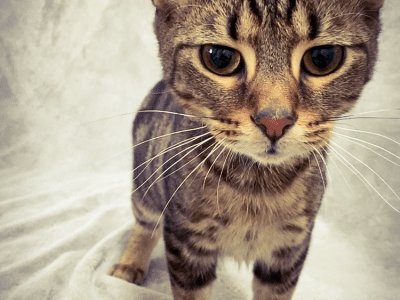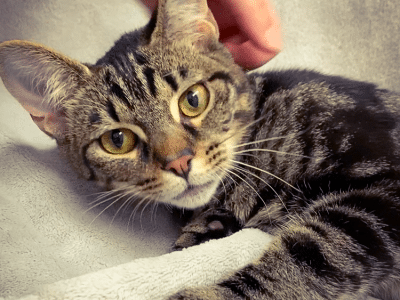These brothers came in from a fairly dire situation. They came from a hoarder's house, and they were covered in mites and fleas. They were under socialized and quite fearful, but it did not take long before they became very friendly and smoochy. Their itchy skin has settled, and they are such affectionate boys. They are very bonded and want to stay.
Further vet tests showed that Kenai has tested a feint positive to feLV (feline leukemia). Yet, exposure to the feline leukemia virus doesn’t have to be a death sentence; about 70% of cats who encounter the virus are able to resist infection or eliminate the virus on their own. His brother is clear. Due to this result, these cats can only be housed in a home with no other cats preferably with experienced cat owners.
Feline leukemia is a disease that only affects cats -- it cannot be transmitted to people, dogs, or other animals. FeLV is passed from one cat to another through saliva, blood, and to some extent, urine and faeces. The virus does not live long outside the cat’s body -- probably just a few hours. Grooming and fighting seem to be the commonest ways for infection to spread. Crucially, exposure to FeLV won’t be a death sentence for every cat. Some kitties can mount an effective immune response on their own.






